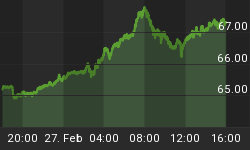Why Do We Invest?

There is not one correct or proper answer to the question of why do we invest? However, if we answer the question honestly, we can possibly improve our investment outcomes. Having worked on Wall Street for over twenty years and witnessed two massive bubbles and subsequent deflating of those bubbles, we have seen every investment mistake in the book. Since our job is to help clients manage risk and reward, our basic approach to investing can be summed up as follows:
Regardless of our age, social standing, or lot in life, we all want to make money and avoid losing money if possible.
You may or may not agree with the statement above, and there is nothing wrong with that. However, you should be able to define your investment objectives in a similar and simplified manner.
Conflicting Objectives
Notice how the statements below do not necessarily help us "make money and avoid losing money if possible":
- The Fed is juicing the markets.
- This whole rally is manufactured and fake.
- The bad players in the financial crisis were bailed out.
- The whole system is being manipulated.
- President Obama's policies are hurting the economy.
- The Republicans are to blame.
- Geopolitical risks should be our primary focus.
- The Fed's money printing will lead to runaway inflation.
Stay On Task, Not Personal Agendas
Is there anything wrong with having an opinion about monetary policy, politics, foreign policy, bailouts, or inflation? No, it is a healthy and necessary part of a free society. The hard question to ask yourself is:
Are personal opinions making it difficult to invest consistently, successfully, and objectively?
Before you answer, allow us to take a trip down memory lane. Just a few short years ago, many believed the entire global financial system would implode.
Did You Think Stocks Would Rally For Five Years?
Assume we were polled in early 2009 and asked the following question:
What do you think the odds are the S&P 500 rallies over the next five years and surpasses 1,950?

Personally, my answer would have been "the odds are almost zero". My guess is many readers would have been justifiably skeptical in late 2008 or early 2009 as well. Guess what? The S&P 500 is trading at 1,991 today.
How about if we were asked this question in early October 2011:
Given the financial crisis in Europe, what do you think the odds are that the S&P 500 rallies smartly over the next 34 months?
Again, my personal answer would have been "the odds are almost zero". My guess is many readers would have been justifiably skeptical in early October 2011 as well. Guess what? Since early October 2011, the S&P 500 has rallied for 34 months.
How Do We Improve Our Odds Of Success?
The examples above illustrate the potential pitfalls of investing based on personal opinions - your own or that of any writer, talking head, or individual. Let's assume we thought stocks were way overvalued in 1997. Stocks rallied for three more years, illustrating it is the market's interpretation of value that matters, not our personal view. Therefore, we can improve our odds of investment success by staying aligned with the net aggregate interpretation of all the meaningful inputs (Fed policy, valuations, inflation, earnings, geopolitical events, bailouts, etc.). Were there ways to see that our personal opinions may have been wrong in early 2009? Yes.

Were there ways to see that policy moves by the European Central Bank were improving the market's tolerance for risk between October 2011 and the present day? Yes.

Are The 50-Day And 200-Day Perfect?
No, in fact, no moving average, indicator, or ratio represents the holy grail of risk management. Since the 50-day and 200-day can produce whipsaws from time to time, we do not recommend building a system based on these inputs only. However, the moving averages shown here do add value and can be used in conjunction with other "this can improve our odds of success" tools to build a diversified risk management system. This flow diagram is an example of using multiple hard and unbiased inputs on numerous time frames in a diversified manner.
More On Risk Management Systems
If you want to get your creative juices flowing and expand on the concepts presented above, the following articles may be of interest to you:
- You Will Never Look At The Markets The Same Way Again
- Tired Of Missing Rallies? 4 Ways To Improve Your Game
- 5 Reasons Your Simple Bear Market Plans Could Backfire
- The Most Important Thing For 2014
- With The Fed Stepping Back, Your Portfolio Needs You To Step Up And Lead
Investment Implications - What Does The Market Think?
The market's opinion determines the value of our investments. The previous sentence speaks to how markets work. What is the market telling us right now? We can use 2011 as a reference point for fear (see chart below).

The same chart shows a much more risk-embracing profile as of Thursday, July 24, 2014.

Therefore, it remains prudent to maintain an exposure to U.S. stocks (SPY) and leading sectors, such as transportation stocks (IYT).
Has All The Pontificating Helped?
The financial media is filled with fear-mongering stories outlining reasons to "raise cash" or "prepare for a stock market top". The public demands these stories and the media has been delivering them for decades. However, it is prudent to ask yourself how helpful have these gloom-and-doom articles been from an investing perspective? Have they helped you move closer to making money and reducing the odds of losing money? Just as a stopped clock is right two times a day, eventually the fear mongers will appear to be correct. Trouble is they have been wrong for several years.















